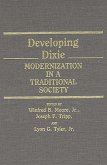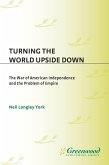Modern financial theories enable us to look at old problems in early American Republic historiography from new perspectives. Concepts such as information asymmetry, portfolio choice, and principal-agent dilemmas open up new scholarly vistas. Transcending the ongoing debates over the prevalence of either community or capitalism in early America, Wright offers fresh and compelling arguments that illuminate motivations for individual and collective actions, and brings agency back into the historical equation. Wright argues that the Colonial rebellion was in part sparked by destabilizing British monetary policy that threatened many with financial insolvency; that in areas without modern financial institutions and practices, dueling was a rational means of protecting one's creditworthiness; that the principle-agent problem led to the institutionalization of the U.S. Constitution's system of checks and balances; and that a lack of information and education induced women to shift from active business owners to passive investors. Economists, historians, and political scientists alike will be interested in this strikingly novel and compelling recasting of our nation's formative decades.
Bitte wählen Sie Ihr Anliegen aus.
Rechnungen
Retourenschein anfordern
Bestellstatus
Storno









